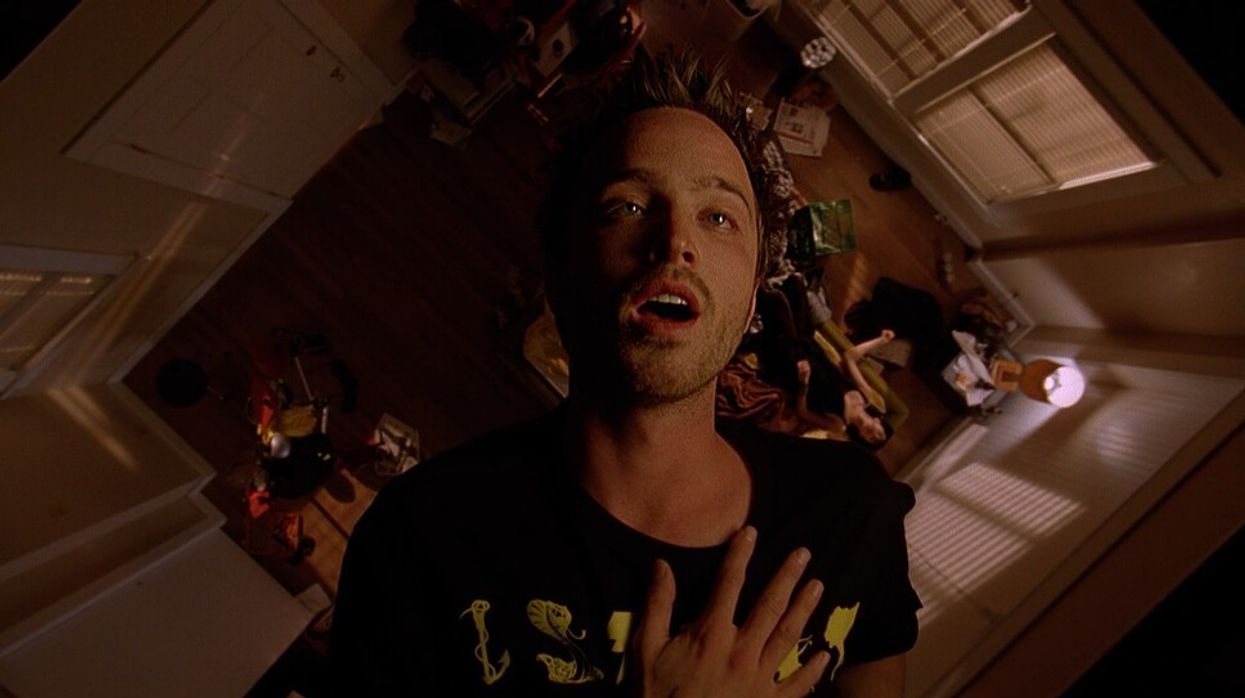Is Dialogue Overrated? Vince Gilligan Thinks It "Carries Too Much Weight"
If the story is king, then maybe we don't need dialogue after all.

'Breaking Bad'
Vince Gilligan is the creator of two of the best TV shows of all time: Breaking Bad and Better Call Saul. I legitimately believe that if you study the Breaking Bad pilot and theBetter Call Saul screenplays screenplays , you will be a better writer.
It's safe to say, you should seek out any advice or ideas Mr. Gilligan has on writing. Recently, he sat down with Variety, where he gave an all-encompassing interview.
You can read it here.
A quote from that interview went viral, so we're talking about it here. When asked about the subtle moments of Breaking Bad that he's most proud of, Gilligan waxed about Skinny Pete and Badger.
But then he went a little deeper.
Gilligan said, "I’m mainly proud of the machinations of the plot of Breaking Bad. The twists and turns of the plot. I think dialogue is the third leg of the tripod of writing. It’s fun writing interesting and quotable dialogue, but I always feel like dialogue gets too much credit in movies and TV shows. We’re not writing stage plays, we’re writing motion pictures. Dialogue often carries too much weight in writing. But having said that, I still quote in my head some of the lines of dialogue that these writers wrote. That’s the stuff I’m kind of secretly proud of — the turns of phrase and whatnot."
At first glance, I will admit, I got my ire up. I love writing dialogue, and I think many writers, myself included, dream of writing a line that lasts forever. I mean, "I am the one who knocks" is an all-time great line!
But then I thought a little deeper, and I guess I would actually prefer to be known as someone who writes all-time great stories instead.
In fact, the more I thought about it, the less I think dialogue matters to me in my emotional experience when it comes to film and TV.
Like, I have never sat down and written a movie or show because of a line of dialogue.
I have ideas of cinematic stories that nag at me until I unleash them onto the page.
If you want to be even more analytical, we have a handful of articles on this site about how to write dialogue. We have tomes about how to work out the beats of a story.
So, while we do have lots of writers out there whose dialogue brings us to the theater or gets pour TV to a certain channel, I think the only reason we wind up staying is if the story pulls us in.
It doesn't matter if it sings, only if it delivers a story that connects.
What's your stance on this?
Let me know in the comments.
- How Do Professional Screenwriters Outline Their Projects? ›
- 10 Screenwriting Tips from Vince Gilligan ›
- Vince Gilligan: From Breaking In to 'Breaking Bad' at the 20th Austin Film Festival ›
- What Is a Stanza? ›
- How to Come Up With a Screenplay Title | No Film School ›
- What Are The Best Musicals of All Time? | No Film School ›











